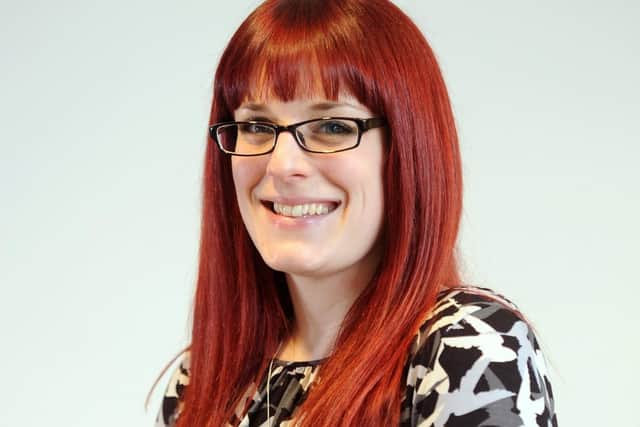Coronavirus is forcing us all to admit to our vulnerabilities - Lindsay Pantry


Just a few days later, my family and I are facing 12 weeks of social isolation.
When Boris Johnson announced the latest social distancing measures on Monday afternoon, I spent an anxious few hours awaiting the publication of the list of those deemed at increased risk, and therefore facing the most “stringent” measures for the next few weeks.
Advertisement
Hide AdAdvertisement
Hide AdWhen it was finally published on the gov.uk website later on Monday night, my eyes immediately spotted it. Multiple sclerosis (MS), the neurological condition that both my partner and I have.


By next weekend, we must be "largely shielded from social contact for around 12 weeks".
There goes helping my neighbour. Our long-awaited first family holiday in May. And basically doing anything out of the house with our two young children. We will all be stir crazy by the end of the first week.
But flippancy aside, over the last few weeks, the thoughts of many of us, myself included, will have been rightly directed towards the older members of our communities.
Advertisement
Hide AdAdvertisement
Hide AdAccording to the Office for National Statistics, there were 11.9m people aged 65 and over in the UK in 2018. While the latest social distancing measures relate to those aged 70 and over, that’s a lot of people who will be relying on the help and support of others during this worrying time.


Groups have sprung up across Yorkshire, including in my own village in Rotherham, of people ready and willing to help those who need it.
But the needs of younger people with pre-existing medical conditions or disabilities have probably been far from your first thoughts. Probably because the bulk of them are you. And you are probably more concerned about looking after an elderly relative or friend.
The distancing measures will apply to anyone who was offered the seasonal flu vaccine by their GP. Last year, according to the Public Health England, 25 million people in England were eligible for the flu jab.
That’s almost half of England’s population.
Advertisement
Hide AdAdvertisement
Hide AdIt’s anyone with asthma, chronic heart disease, kidney disease, chronic neurological conditions, diabetes, and those on chemotherapy. The list goes on.
Are we all going to self-isolate for 12 weeks? And who is going to ensure we have what we need to survive for three months? And more importantly, who is going to step into the roles that we leave behind. The nurse with diabetes, the supermarket workers with asthma, and the legions of carers, paid and unpaid, who put their own needs on the back burner as they support other people.
“You don’t look disabled” is often the reaction when I tell people about my MS. Generally speaking, I don’t, but that’s because I manage my condition and have been very lucky in the first few years of diagnosis.
But when I get a cold or viral illness, my limp returns, I can’t walk very far, and I face a period of fatigue. If I’m tired, my legs develop pins and needles, and if I’m stressed, for some bizarre reason my left cheek goes numb.
Advertisement
Hide AdAdvertisement
Hide AdJust a few of a long list of my MS oddities - all of which are very minor for someone who has been diagnosed for almost eight years, but the threat of relapse is always there.
Until this week, I did not consider myself as a “vulnerable” adult, nor did I consider my partner to be. He is fit and healthy, plays sport, works full time, but is on immunosuppressive medication, which in itself can knock him for six. When he gets coronavirus, it will hit hard. And with a three year-old and a baby at home, we will have our work cut out. It is very sobering. And increasingly worrying.
We will be forced to admit that we are in fact vulnerable. That we need help.
When I speak to friends in the same situation, what is worrying us all the most is the lack of clear information.
Advertisement
Hide AdAdvertisement
Hide AdWhile admittedly, it’s getting better, a week or so ago I thought I’d be the one caring for members of our family. Now I know I won’t be able to, I need to find someone to fill that void.
Once again it will be our overstretched third sector stepping into the breach.
But what we need, more than ever, is for everyone who can to look out for their neighbours, to do so. And not just those who are elderly, to ensure that as many of us as possible come out the other side.
Lindsay Pantry is The Yorkshire Post's Social Affairs Correspondent
Comment Guidelines
National World encourages reader discussion on our stories. User feedback, insights and back-and-forth exchanges add a rich layer of context to reporting. Please review our Community Guidelines before commenting.